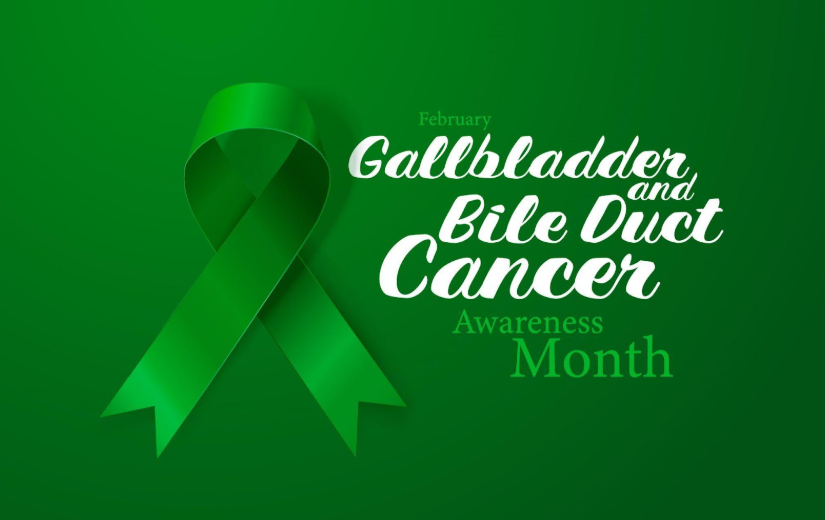Understanding Colon Cancer in Millennials

Colon cancer, or rectal cancer, once considered a disease of older adults, is now increasingly found among younger people, including millennials. This shift in age groups signifies the importance of researching the causes, symptoms, diagnosis, treatment options, and prevention strategies for colon cancer in this population.
Read on to understand the essential aspects that can give millennials valuable insights into this disease.
The Rise of Colorectal Cancer among Young Adults
Given its historical correlation with older age groups, the rise in colon cancer incidence among young adults in recent years is troubling. Early detection is critical for treatment success. Although screening criteria begin at 45, young people who experience symptoms should seek medical attention immediately. Strengthening education is essential because it promotes timely screenings and proactive health behaviors, which improves outcomes for younger people with colorectal cancer.
What Is Colon Cancer?
Colon cancer, medically known as colorectal cancer, is a type of cancer that originates in the colon or rectum, which are parts of the large intestine. The longest and first section of the big intestine is called the colon. It is responsible for absorbing water and nutrients from digested food before it is expelled as waste.
Colon cancer typically begins as small growths of cells called polyps on the inner lining of the rectum. While most polyps are benign (non-cancerous), some have the potential to become cancerous over time. If left untreated, these cancerous polyps can grow and spread to other parts of the body, leading to serious health complications.
Understanding the Stages of Colon Cancer
Colon cancer is staged to determine its severity and guide treatment decisions. Healthcare providers utilize the TNM cancer staging system, established by the American Joint Committee on Cancer, to categorize colon cancer into distinct stages. Let's delve into each stage to gain a clearer understanding.
Stage 0: Carcinoma in Situ
Stage 0, often termed carcinoma in situ, refers to abnormal or precancerous cells in the mucosa, the innermost layer of the colon wall. At this stage, malignant cells are still not spreading beyond the mucosa.
Stage I: Localized Growth
In Stage I colorectal cancer, the tumor has started to develop into the intestinal wall but has not progressed past the muscular coat or into neighboring lymph nodes. This phase denotes localized expansion inside the colon.
Stage II: Progression Within the Colon
Stage II signifies a further progression of cancer within the colon wall. There are three sub-stages within Stage II:
- Stage IIA: Cancer has spread through most of the colon wall but has not reached the outer layer.
- Stage IIB: Cancer has extended into the outer layer of the colon wall or penetrated through it.
- Stage IIC: Cancer has spread to a nearby organ, though it remains within the colon vicinity.
Stage III: Lymph Node Involvement
At Stage III, colon cancer has spread to nearby lymph nodes. The sub-stages of Stage III are as follows:
- Stage IIIA: Cancer is found in the colon's first or second layers and has progressed to one to four lymph nodes.
- Stage IIIB: The cancer involves more layers of the colon wall but is limited to one to three lymph nodes. Alternatively, if the tumor affects fewer layers but involves four or more lymph nodes, it is also classified as Stage IIIB.
- Stage IIIC: Cancer is found in the colon's outer or next outermost layer, affecting four or more lymph nodes. Additionally, if it has spread to a nearby organ and one or more lymph nodes, it is categorized as Stage IIIC.
Stage IV: Metastatic Spread
Stage IV represents the most advanced stage, indicating that cancer has metastasized to distant organs or tissues beyond the colon. The sub-stages include:
- Stage IVA: Cancer has spread to one organ or distant lymph nodes.
- Stage IVB: The cancer has metastasized to multiple distant organs and lymph nodes.
- Stage IVC: Cancer affects distant organs, lymph nodes, and abdominal tissues.
Understanding the stages of colon cancer is crucial for both patients and healthcare providers. It aids in determining the appropriate treatment approach and prognosis, ultimately improving patient health. Regular screenings and early detection play a pivotal role in managing colon cancer effectively.
Causes of Colon Cancer in Millennials
While the exact causes of colon cancer in millennials are not fully understood, several factors may contribute to its development. These include:
Sedentary Lifestyle
A lack of physical activity can increase the risk of rectal cancer. Millennials, often engaged in sedentary occupations and lifestyles, may be susceptible to this risk factor.
Dietary Habits
Youths often eat quick and easy foods, leading to nutrition issues. Eating processed foods, fatty diets, and low-fiber meals can increase the chance of colon cancer.
Obesity
Many millennials struggle with excess body weight, which is linked to a higher risk of this illness.
Smoking and Alcohol Consumption
Smoking and heavy alcohol intake can increase the probability of colon cancer. Younger generations should be aware of the potential effects of these behaviors on their health.
Genetic Factors
While less common, genetic predispositions like Lynch syndrome can raise the risk of colon cancer in young people. Understanding a person's family history and genetic risk factors can therefore help in the matters of early detection and prevention.
Symptoms of Colon Cancer in Millennials
Recognizing the signs of colon cancer is important for early detection and prompt treatment. While symptoms may vary, common indications of colon cancer in millennials include the following:
- Rectal Bleeding: Blood in the stool or rectal bleeding could be a sign of colon cancer, especially if it continues or comes with other symptoms.
- Changes in Bowel Habits: Constipation or diarrhea that persists for an extended period may significantly indicate the illness.
- Abdominal Discomfort: Persistent abdominal pain, cramping, or discomfort warrants medical evaluation, especially with other symptoms.
- Unexplained Weight Loss: Unintentional weight loss without diet or exercise modifications should be taken seriously and investigated further since it may indicate underlying health issues such as colon cancer.
- Fatigue: Continuous fatigue or weakness, especially when experienced alongside other symptoms, could indicate advanced stages of rectal cancer.
Diagnosis of Colon Cancer in Millennials
Early identification can help when it comes to the successful treatment of colon cancer. People should proactively seek medical attention if they experience any concerning symptoms. Checkups for rectal cancer may include the following procedures:
- Genetic Testing: Individuals with a family history of colon cancer or suspected genetic predispositions may undergo genetic testing to assess their risk and inform treatment decisions.
- Colonoscopy: Considered the ideal solution for colon cancer screening, a colonoscopy allows for the direct visualization of the colon and the detection of polyps or tumors.
- Biopsy: If suspicious lesions are found during a colonoscopy, a tissue sample (biopsy) may be taken for further examination to confirm the presence of cancer cells.
- Imaging Studies: In cases where colonoscopy is not feasible, imaging tests such as CT scans or MRI scans may be performed to evaluate the extent of the disease.
Treatment Options for Colon Cancer in Millennials
Treatment for colon cancer typically involves a multidisciplinary approach tailored to the individual patient's needs. Treatment options may include:
Surgery
The primary treatment for localized colon cancer involves the surgical removal of the tumor and affected surrounding tissue. Minimally invasive techniques, such as laparoscopic or robotic-assisted surgery, may offer faster recovery times and fewer complications.
Chemotherapy
Adjuvant chemotherapy may be recommended following surgery to destroy any remaining cancer cells and reduce the risk of recurrence. This therapy may be the primary treatment to shrink tumors and alleviate symptoms in advanced or metastatic disease cases.
Targeted Therapy
Targeted therapies, such as monoclonal antibodies or small molecule inhibitors, may be combined with chemotherapy to target specific molecular pathways involved in cancer growth and progression.
Immunotherapy
This treatment method optimizes the body's immune system to fight cancer. Immunotherapy is a potential treatment option for colon cancer, particularly in advanced cases.
Radiation Therapy
Radiation therapy may be used in combination with surgery, chemotherapy, or both, especially for rectal cancer, to shrink tumors before surgery or as a palliative treatment to relieve symptoms.
Preventive Measures for Colon Cancer in Millennials
Adopting healthy lifestyle habits and undergoing appropriate screening can help prevent or detect the disease at an early stage. Preventive measures include:
- Healthy Diet: Eating a balanced diet rich in fruits, vegetables, whole grains, and lean proteins can reduce the risk of colon cancer. Limiting processed foods, red meats, and sugary beverages is advisable.
- Regular Workout: Regular physical activity can lower the risk of colon cancer and improve overall health. Aim for at least 150 minutes of exercise each week.
- Maintain a Healthy Weight: Avoiding excess body weight through diet and exercise can lower the risk of colon cancer and other obesity-related diseases.
- Avoid Smoking and Excessive Alcohol Consumption: Quitting smoking and moderating alcohol intake can decrease the risk of colon cancer.
- Screening: Adopting screening guidelines for colon cancer, such as colonoscopy starting at age 45 for average-risk individuals, is essential for early detection and prevention.
Final Words
The rise of colon cancer among millennials is concerning and emphasizes the need for awareness, early detection, and preventive actions. Seeking advice from healthcare professionals for personalized recommendations and staying updated on the latest developments in colon cancer research and treatment are crucial steps in fighting this disease.
Improve your colorectal health with Northlake Gastroenterology. We focus on preventive measures and early diagnosis to ensure a better tomorrow. Please
schedule an appointment right now to stay healthy!
More Blogs












